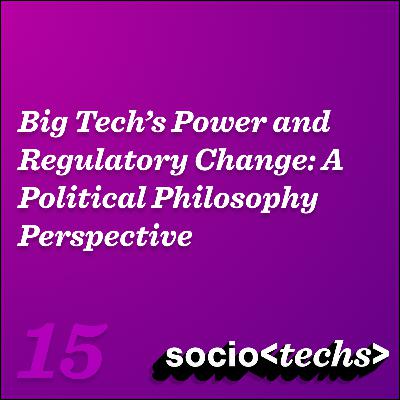Unfair ID: Digital Identity from Injustice to Resistance
Description
Digital identity, meaning the conversion of human identities into digital data, is often hailed as a route to benefits from the public and private sectors. At the same time, a different reality confronts this orthodoxy: vast empirical evidence exists on the harmful outcomes of digital identity, ranging from exclusion of entitled individuals from essential services to perilous forms of policing and profiling. In this episode, a crossover with IS Digest hosted by Casandra Grundstrom, Silvia Masiero turns from host to interviewee, discussing with Tejas and Casandra her newly launched book Unfair ID. The conversation opens up multiple ways to turn the unfairness of digital ID into proactive routes to collectively imagine how a fair ID can be built.
Silvia Masiero, co-host of this podcast, is an associate professor of Information Systems at the University of Oslo. She is the Editor-In-Chief of the Journal of Information Technology for Development and the Chair of the IFIP 9.4 Working Group on the Implications of Information and Digital Technologies for Development. Unfair ID is her first book.
Unfair ID is available now at https://us.sagepub.com/en-us/nam/unfair-id/book285008
References:
Cheesman, M. (2022). Self-sovereignty for refugees? The contested horizons of digital identity. Geopolitics, 27(1), 134-159. https://www.tandfonline.com/doi/full/10.1080/14650045.2020.1823836
Costanza-Chock, Sasha. (2020). Design Justice: Community-Led Practices to Build the Worlds We Need. https://direct.mit.edu/books/oa-monograph/4605/Design-JusticeCommunity-Led-Practices-to-Build-the
Jonnalagadda, K. (2024, September 30). Life without Aadhaar. Deccan Herald. https://www.deccanherald.com//india/life-without-aadhaar-3200235
Masiero, S. (2018). Explaining trust in large biometric infrastructures: A critical realist case study of India's Aadhaar project. The Electronic Journal of Information Systems in Developing Countries, 84(6), e12053. https://onlinelibrary.wiley.com/doi/full/10.1002/isd2.12053
Masiero, S. (2015). Redesigning the Indian food security system through e-governance: The case of Kerala. World Development, 67, 126-137. https://www.sciencedirect.com/science/article/pii/S0305750X14003258
Masiero, S., & Das, S. (2019). Datafying anti-poverty programmes: Implications for data justice. Information, Communication & Society, 22(7), 916-933. https://www.tandfonline.com/doi/full/10.1080/1369118X.2019.1575448
Milan, S., & Treré, E. (2019). Big data from the South (s): Beyond data universalism. Television & New Media, 20(4), 319-335. https://journals.sagepub.com/doi/full/10.1177/1527476419837739
Milan, S., & Velden, L. V. D. (2016). The alternative epistemologies of data activism. Digital Culture & Society, 2(2), 57-74. https://digicults.org/files/2018/01/Stefania-Milan-Lonneke-van-der-Velden_Data-activism.pdf
Weitzberg, K. (2020). Biometrics, race making, and white exceptionalism: The controversy over universal fingerprinting in Kenya. The Journal of African History, 61(1), 23-43. https://www.cambridge.org/core/journals/journal-of-african-history/article/biometrics-race-making-and-white-exceptionalism-the-controversy-over-universal-fingerprinting-in-kenya/B69DDDFE3FECF158E157BB40304B2B6A



















